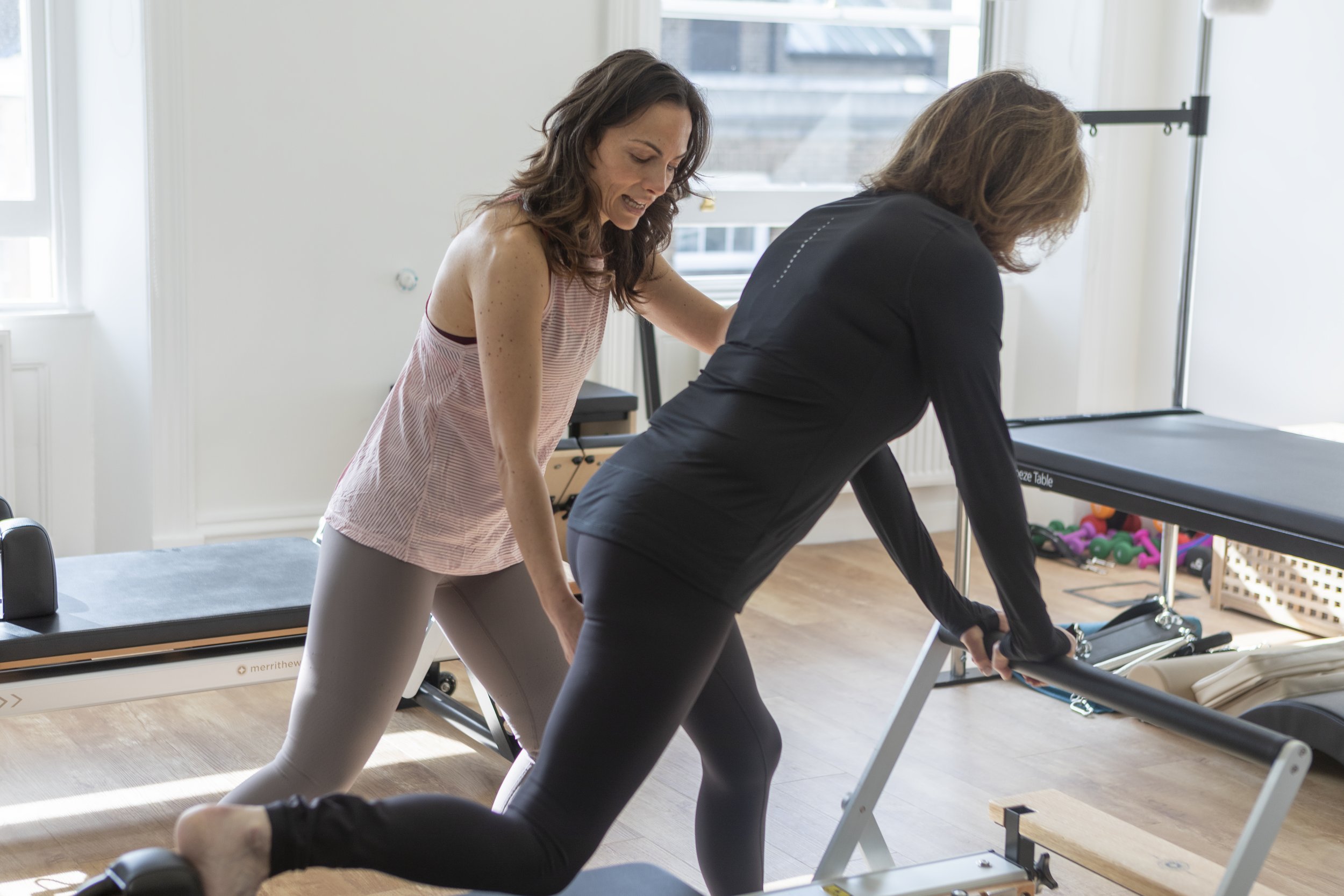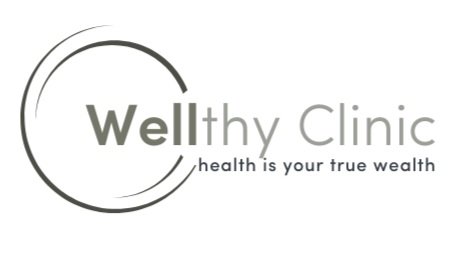
Wellthy Clinic offers 1:1 Pregnancy Pilates.
In Marylebone, London W1.
Pregnancy Pilates London
Safe Personalised 1:1 Support
Looking for expert Pregnancy Pilates in London? At Wellthy Clinic in Marylebone, London W1, we offer tailored 1:1 Pre and Postnatal Pilates sessions designed to support your changing body throughout all stages of pregnancy and beyond.
Why Choose Wellthy Clinic for Pregnancy Pilates?
Pregnancy is a time of significant physical, emotional, and hormonal changes. Our experienced instructors provide safe, low-impact, and effective Prenatal and Postnatal Pilates to help manage discomfort, improve posture, and strengthen key muscle groups such as your core and pelvic floor.
Our boutique clinic offers a calming, private environment where you can move, stretch and reconnect with your body under the guidance of highly qualified instructors.
How Pilates during Pregnancy can help at Wellthy Clinic
Benefits of Pregnancy Pilates
Pilates is one of the most recommended forms of exercise during pregnancy. At Wellthy Clinic, our Pregnancy Pilates in London can help you:
Relieve lower back pain, sciatica, and pelvic girdle pain (PGP)
Strengthen your core and pelvic floor muscles
Improve circulation and posture
Support mental well-being through mindful movement
Prepare your body for labour and postpartum recovery
Book a New Client Intro Offer
Experience the gbenefits of our personalised approach to Pregnancy Pilates with our New Client Pregnancy Pilates Introductory Offer. Conveniently located in Marylebone, Central London, near Harley Street and Oxford Circus.
Meet Our Pregnancy Pilates Specialists
Gokben
Specialist in Pre & post natal Pilates and rehabilitation.
Melissa
Expert in Pre & post natal recovery and functional movement.
Each instructor has in-depth experience adapting Reformer Pilates to suit the needs of pregnant women at every stage of their journey.
At Wellthy Clinic, we know that every wellness journey is different. This is why we offer 2 different options suited to you and your needs.
Our Pregnancy Pilates Prices
45 mins
£75*
60 mins
£90*
*10 packs available to save 10%
Why Our Clients Choose Pregnancy Pilates
Private, 1:1 attention in a tranquil Marylebone studio
Fully qualified Pre and Postnatal Pilates instructors.
Convenient Central London location
Clinic owners offer Osteopathy as part of an integrated approach.
Focused care for both physical health and emotional well-being.
Frequently asked questions
Is it OK to do Pilates when pregnant?
Yes, engaging in Pilates during pregnancy is generally safe and can offer numerous benefits, including improved core strength, better posture, and reduced back pain. However, it's essential to approach Pilates with care and to make adjustments as your pregnancy progresses.
Is it safe to do Pilates when pregnant?
Yes, pregnancy Pilates is safe and beneficial when supervised by a trained instructor. We adapt exercises for each trimester to protect your body and your growing baby.
When should I tell my Pilates instructor I’m pregnant?
You should inform your Pilates instructor about your pregnancy as soon as you feel comfortable, ideally before participating in further sessions. This early communication allows your instructor to tailor the exercises to suit your changing body and ensure your baby's safety and health. They can modify routines to accommodate your needs and avoid any movements that might be uncomfortable during pregnancy.
Are there any exercises to avoid when pregnant?
We recommend you take it easier with the exercises within your first trimester. During the second trimester, limiting lying on your back or front is generally best. However, particular movements to avoid will vary from person to person.
Are there any exercises to avoid when pregnant?
Exercise during pregnancy is beneficial for most women, but specific exercises and activities should be avoided to ensure the safety of both the mother and the baby.
First Trimester:
Take It Easy: The first trimester can often bring fatigue and morning sickness. Listen to your body and adjust the intensity of your workouts accordingly. High-impact exercises and activities involving a risk of falling should be approached cautiously.
Stay Hydrated and Cool: Overheating can be a concern during pregnancy, so ensure you stay well-hydrated and avoid exercising in hot, humid conditions.
Second Trimester:
Avoid Lying Flat on Your Back: As your pregnancy progresses, lying on your back can put pressure on the vena cava (central vein), potentially reducing blood flow to your heart and baby. Opt for side-lying positions or use pillows for support.
Limit Prone Positions: Lying on your stomach becomes impractical as your belly grows. Avoid exercises that require this position.
Be Mindful of Balance: Your centre of gravity shifts as your belly grows, increasing the risk of falls. Be cautious with activities that challenge your balance.
Third Trimester:
Exercise intensity: Your energy levels could be affected. It is important to find a balance and not overdo exercises. Your pregnancy Pilates instructor can monitor and advise.
When is the best time to start Pilates when you are pregnant?
If you haven’t tried Pilates before, we suggest starting in the second trimester; otherwise, you could start beforehand. All initial pregnancy Pilates sessions at Wellthy include an assessment to ensure best practice.
Does Pilates cause miscarriage?
Given its low-impact nature, Pilates is highly unlikely to cause miscarriages. However, to be on the safe side, if you haven’t previously tried Pilates, we suggest starting in your second trimester, at week 12. The initial session will go through the Pilates principles, the correct use of the machines, and discuss any concerns you may have in order to develop a bespoke plan for you.
Are there any recommendations for exercises when pregnant?
When practising, we recommend that you progress gradually based on your general health and your pregnancy. Depending on your personal needs, it can be more strengthening- or mobility-based. Also, traditional Pilates movements can be adapted to your Pregnancy stages by modifying your body positioning and using additional props.
Does Pilates make childbirth easier?
Pilates strengthens your body and promotes overall endurance in preparation for labour. It increases your energy levels and encourages circulation. It helps to reduce stress and muscle tension. Pilates also supports your body’s recovery after birth, including the strength and tone of your pelvic floor muscles.
Book Your Pregnancy Pilates in London
Join the many women who have found strength, support, and calm at Wellthy Clinic during their pregnancy.








